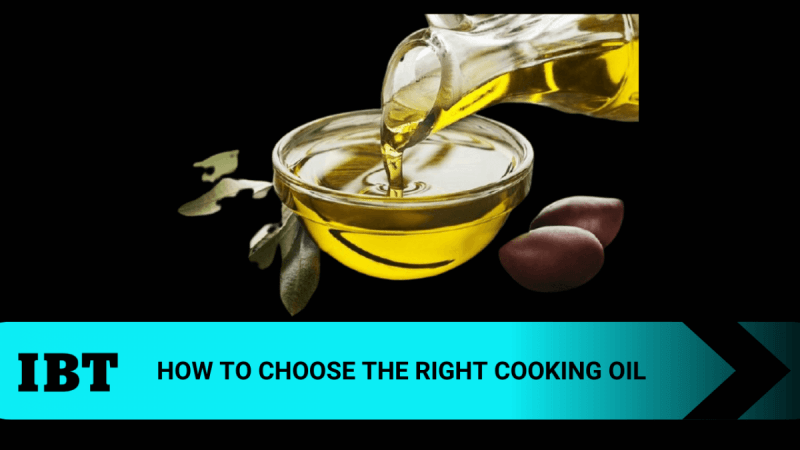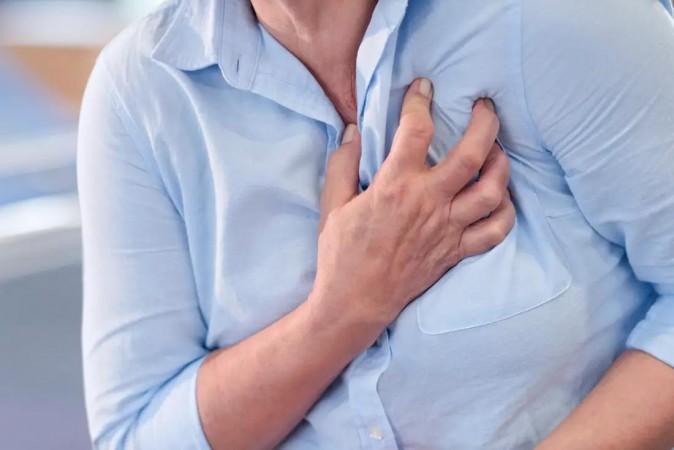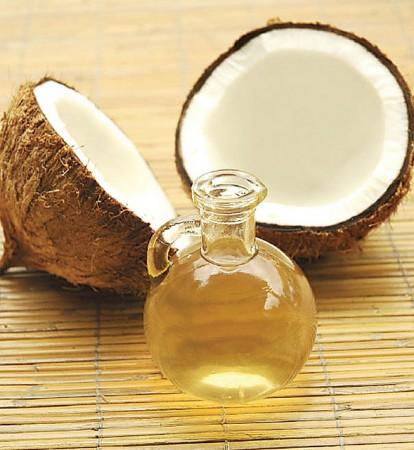What oils should be used for frying, tossing our foods, in salads or shall we use oils at, all have been a long-standing debate in modern nutrition.
Our traditional fats have been replaced with processed oils which are manufactured in bulk and many of our traditional cooking methods are replaced with modern cooking methods of different oils and cookware.

The same meal or a dish which was once prepared using traditional methods and ingredients was nutrient-dense and more bio-available which now can be harmful to our body. The current use of manufactured oils coupled with modern cooking gadgets has destroyed nutrients.
In this Q and A, let us look at which fat is the best for frying and which fats or oils are best in the raw or unprocessed forms.
1. What is the difference between "fat "and "oil'?
When the lipid is solid at room temperature it is called fat and if it's liquid it's called oil. 2. Should vegetable oils be heated?
Vegetable oil should never be heated, In fact, they should never be consumed. They contain a highly sensitive polyunsaturated fat. When heated these fats turn into trans fats.
They are highly unstable to heat which means all processed vegetable oils are bad fats since they processed in heat. So, watch out for label if it says trans free. Processed vegetable oils cannot be trans-fat free.
2. Should vegetable oils be heated?
Vegetable oil should never be heated, in fact, they should never be consumed. They contain a highly sensitive polyunsaturated fat. When heated these fats turn into trans fats. They are highly unstable to heat which means all processed vegetable oils are bad fats since they processed in heat. So, watch out for label if it says trans free. Processed vegetable oils cannot be trans-fat free.
3. Where does vegetable oils come from?
The seeds are healthy but processing them is not. Vegetable fats are the extraction of lipids from corn, canola, sunflower, rice bran, sunflower oils. The seeds of these plants stay dormant in cold weather, that is winter.
During spring the polyunsaturated fatty acids start to germinate due to heat or warmer temperature. These polyunsaturated fats in these seeds protect it from heat. But when we process them, we destroy the polyunsaturated fats and its antioxidants and turn them into unhealthy fats.
4. What is a cold-pressed oil or extra virgin oil?
![In order to cut down a patient's risk of heart attack, doctors should start prescribing olive oil, vegetables and nuts even before any symptoms of heart diseases begin showing. [Representational image] mediterranean diet](https://data1.ibtimes.co.in/en/full/686052/mediterranean-diet.jpg?h=450&l=50&t=40)
Cold-pressed oil or extra virgin oils are expelled without heat. This method stores the antioxidants within the source of seeds and it doesn't make it volatile.
On the other hand, manufactures of vegetable oils add solvents, intense heat and many other methods of oil processing and make it inedible and unhealthy to consume.
5. Which oils shall we use in cooking?
Any oil which can withstand heat for long should be used for cooking. Extra virgin or cold-pressed mustard oil, groundnut oil, sesame oil, ghee, butter, extra virgin coconut oil to name a few. These oils can resist heat.
Since they are saturated there is no room for extra oxygen to squeeze in when heated and break its structure to trans fats. Monounsaturated fat has one room for an oxygen molecule to squeeze in and polyunsaturated has many. It is still fine to cook in monounsaturated fats like macadamia, avocado and olive oil. Extra virgin avocado, macadamia oil and olive oil can be used in adding to salads, dips or adding flavours after food has been cooked or can be used for tossing but not prolonged cooking and frying.
6. Desserts can be rich in sugar and fat, what are the alternatives?
Grilled pineapples, strawberries with cream, apple slices, frozen grapes, dark chocolate > 70% cocoa are some of the most nutritious desserts. Milk chocolate has more sugar and less cacao and has added vegetable oil so pure dark chocolate is a healthier option.
Our traditional mewa laddoo made from jaggery, foxnuts, almonds and flaxseeds, nolegur Sandesh, peanut chikki with jaggery are some healthier dessert alternatives.
7. Why do men get a heart attack before woman?

Men have more testosterone which makes them produce more red blood cells and have more iron in the blood. Excess iron activates oxygen in ways which damage the linoleic acid and Polyunsaturated fatty acids travelling along with red blood cells. When men consume food rich in antioxidants like fresh fruits and vegetables and consume healthy fats and remove all trans fats and vegetable oils, they prevent fat deposition in the arteries.
8. Can you tell us about some hidden vegetable oils in food products?
There can be many food products which can have vegetable oils labelled and to name a few fried crisps like namkeen, samosa snacks in packets, savoury snacks in the packets are some. This doesn't mean that the ones which do not label do not contain vegetable oils. Some classic examples include breakfast cereals most cereals are flaked or puffed, they are coated with vegetable oils which act as a protective varnish and maintains the shape of the product from getting soggy. French fries are another one.
Some restaurants reuse frying oil for a week or longer. These oils turn toxic. Salad dressing except for water and vinegar, most of the packaged ones are pure vegetable oil with sugars. Margarine is just about one molecule away from being called a plastic. A pure white butter or unsalted butter or ghee are a healthier alternative to fats than margarine.
9. What are good fats and bad fats?

Good fats are some of the most nutritious foods. Nuts and seeds like sesame seed, pumpkin seed, sunflower seed, almonds, cashews, pistachios, walnuts, chia seeds, flaxseeds to name a few. Eat natural fats and avoid processed ones.
Homemade butter, ghee, extra virgin or cold-pressed mustard oil, groundnut oil, coconut oil, extra virgin olive oil and any oil which is produced which is unrefined oil are food fats. Amongst animal products egg yolk and natural fat from organic animals and its products are good. However, moderation in consumption is needed.
Vegetable oils disrupt the metabolism. It impairs our cellular function as some of these are trans fats as well. Vegetable oils are heat sensitive polyunsaturated fats. When heated, the fragile fats turn into toxic compounds called trans fats. Canola oil, soy oil, sunflower oil, cottonseed oil, safflower oil, margarine, grapeseed oil to name a few bad fats.
10. How does oil inflame our Arteries?
Oxidants in our tissues restructure the healthy molecules in our tissues. It is like they convert functional arteries to unfunctional ones. They interfere with the metabolic function and clogs the arteries. Frying foods in vegetable oils, deposits many oxidants into the tissues which carry fewer vitamins and antioxidants.
Swapping your oils or fats for healthy ones is one of the major stepping stone in transforming your health goals.
(Disclaimer: Above information on cholesterol is for the general population, individuals may need to consult their physicians. This article doesn't reprehend any brand. Answers on this article are based on research and backed by scientific evidence.)
About the author: This is a guest article by Swati Bathwal, an accredited practising Dietitian Nutritionist and Public Health Dietitian, Certified Diabetes Educator, an accredited Anthropometrist and a registered Yoga Teacher.

















